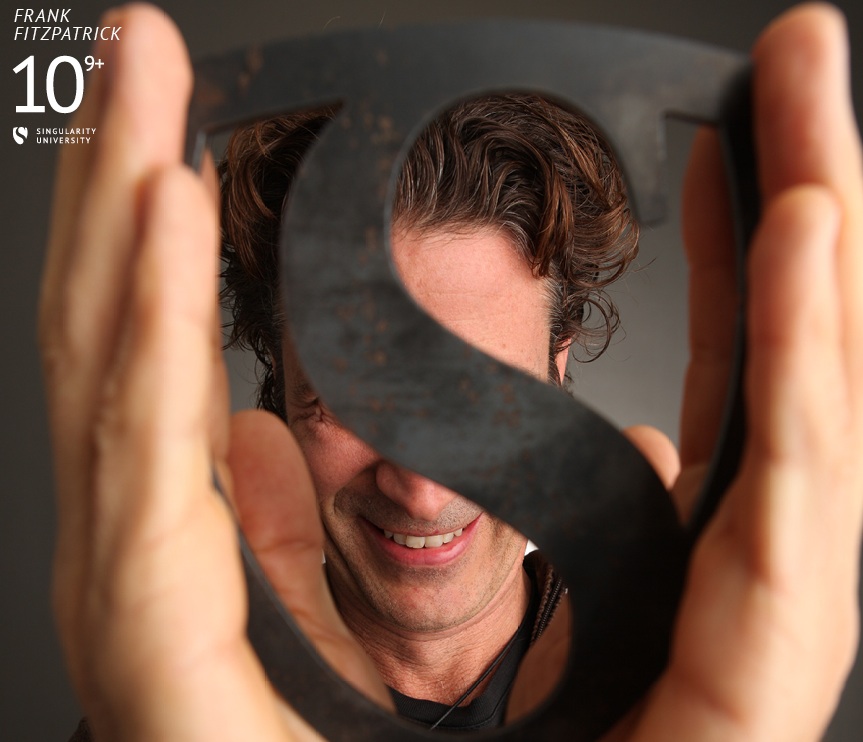Home Frank’s Blog Singularity & Music: Facing Grand Challenges Together
Singularity & Music: Facing Grand Challenges Together
Frank Fitzpatrick 08/23/2012

|
No time to read? Pick your language & press PLAY
Getting your Trinity Audio player ready...
|
I just returned from the closing days of Singularity University‘s Alumni weekend at NASA in Mountain View, California, where I had the distinguished honor of presenting a special evening to the 2012 Graduate Studies Program, its faculty and alumni from around the world on a series of topics very dear to my heart. I called the program BEYOND TECHNOLOGY: Transforming the Human Spirit through the Power of Music and Film – a presentation I hoped would open up a larger dialog and help us begin to build a bridge between the science of technology and the art of communication. To contribute to the conversation, I brought a couple colleagues with me from Los Angeles: writer/producer Dr. Neal Baer (ER, Law & Order: SVU, The Gifted Man) to discuss the power of story and filmmaker Paul Lazarus to discuss his films on inventor Dean Kamen (portable dialysis machine, the Segway, Slingshot water purification system).

I took my first Executive Program at Singularity University (SU) almost a year ago, and realized that the cutting edge and globally impacting work they were doing through exponential technology and new science to train tomorrow’s leaders was a necessary component to have in the mix if I really wanted my own work to have lasting impact and credibility across all disciplines. Where we were already clearly aligned was in our vision, passion and commitment to positively impact the future of humanity through our work. We decided to explore ways we could work together – drawing on my background in music, film and inner sciences to look at ways to help them prepare the next generation of thought leaders and arm them with the knowledge and tools for solving humanities grand challenges.
People come to SU from around the world, across all disciplines, to learn about the power of exponential technologies and learn how to embrace and actualize audacious visions to positively impact the lives of a billion people over the next 10 years. The bar is high. XPrize even holds contests in different cities around the world (Mexico City, Sao Paulo, etc), in which SU applicants have to come up with a winning solution to improve the lives of a million people in their own city just to qualify. The winners get sponsored by the local government for a scholarship to attend SU’s Summer Graduate Program, where they are mentored by some of today’s most brilliant and forward-thinking minds in areas of exponential technologies, medicine and new sciences, as well as Silicon Valley’s pros in the art of business startups and scaling.

What are the Grand Challenges they come together to take on?
Food, Water, Education, Health, Poverty, Energy, Space, Security and Up-cycling (repurposing waste into new valuable products and energy sources).
And what are the tools and knowledge they share to help us take on those challenges?
Interdisciplinary strategies, disruptive and open source systems, the mentorship of science, tech and business experts, and the revolutionary developments of exponential technologies.
But I work from a little different perspective. Disruption and exponential change lead to disruptive stress, which can also increase at an exponential rate, often causing havoc. Despite countless benefits, science and technology alone cannot address the psychological, emotional and cultural complexities of humanity that, as a result of exponential change and disruption stress, can result in increased levels of fear, further resistance to change, and a reduced capacity for what we need most – greater adaptability, empathy and trust.
So last Sunday evening, International Humanitarian Day, I took the SU community on a journey beyond the world of technology and asked them to join me at looking at another Grand Challenge – one at the heart of my work:
How do we help humanity prepare for and adapt to exponential change and increasing levels of disruptive stress?
To get them to start to look at other pieces of the solution I asked them to imagine: how might we work together to create exponential growth in humanity’s capacity for:
 • adapting to emotional stress
• adapting to emotional stress
• coping with flux and uncertainty
• increasing empathy
• coping with information overload
• accessing systems of intelligence beyond the brain
• building better systems of education
• producing more compassionate world leaders
To contribute to new ways to think about solutions for that grand challenge, I dedicated the rest of the evening to demonstrating why music, especially when combined with great story and images, could be at the heart of helping humanity develop the capacity for real growth in these areas, as well as for coping with and adapting to exponential change and disruptive stress.
Over the coming weeks, I will share here many of the insights and developments I shared with the great folks at SU on Sunday. I hope they will prove as eye-opening and useful to you as they did to many of those who showed their appreciation at the end of the evening.
So I don’t leave you hanging, and to go out on a musical note – I thought I would share the song and video that Beyonce made for the United Nations Humanitarian Day celebration.
[youtube]http://www.youtube.com/watch?v=i41qWJ6QjPI[/youtube]
I’m here to help YOU create a better world, inside and out.
Contact Me© 2025 Frank Fitzpatrick Website by AllHereIndia












